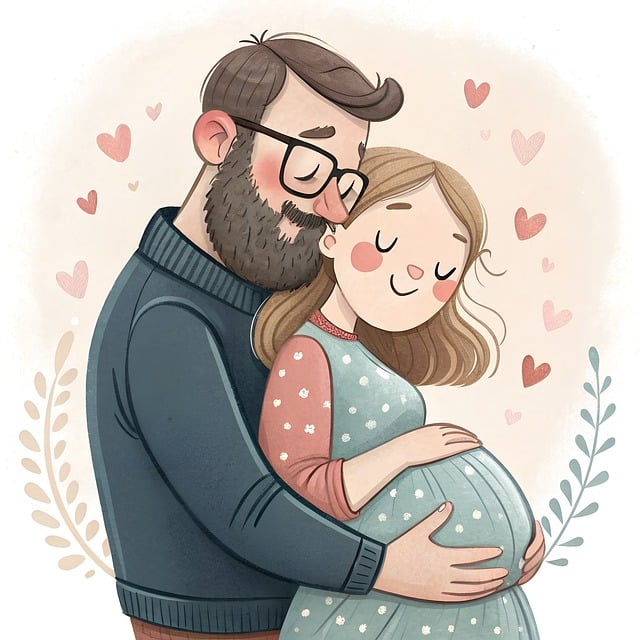Pregnancy can be a challenging journey for many, filled with discomfort ranging from relentless morning sickness to the physical toll of carrying a child. As the baby grows, the internal pressure and aches can become overwhelming, making the long-awaited birth day a true relief. The experience is often described as a mix of anticipation and sheer exhaustion, leading to an emotional rollercoaster.
When checking into the hospital, the question of postpartum depression arises. My response is always the same: no. It’s not depression; it’s pure joy. Joy in knowing that the arduous journey of pregnancy is finally over, joy in the survival of both myself and my newborn through the delivery, and joy in meeting the little one I have nurtured for months. However, this joy is accompanied by a complex mix of feelings that lie somewhere in between.
This in-between emotion is not sadness but rather a concoction of fear, nostalgia, and regret. I recognize this as a reflection of my anxiety, a condition I’ve battled since my first child’s traumatic birth. While I’ve attempted to manage it through therapy and self-reflection, I realize it has been part of my life for much longer.
These feelings often manifest in vivid, unsettling fantasies. They involve scenarios where something terrible happens to my baby or loved ones. I find myself obsessing over the abrupt shift from pregnancy to motherhood, while also reminiscing about the aspects of carrying a child that I think I might miss. Importantly, these thoughts do not stem from a desire to harm my baby or regret having them; they revolve around fears of unforeseen events and a longing for the unique experience of pregnancy.
This postpartum challenge often surfaces during vulnerable moments—at night when I’m alone, when visitors leave, or during those brief naps when I’m left alone with my racing thoughts. The visions I have can be distressing: I worry about accidentally dropping my baby or him choking during the night as I sleep beside him. I constantly scrutinize his every movement, convinced that he might suffer from health issues reminiscent of those faced by my first child. The anxiety is relentless, filled with fears of accidents, diseases, and tragedies that could impact those I love most.
Moreover, this internal struggle serves as a constant reminder that I have chosen to close the chapter on having more children. I made this decision during my last c-section, a choice solidified by medical advice due to complications. This realization adds to my nostalgia for the times when I felt my baby move within me, the conversations I had with my belly, and the overwhelming joy of hearing my newborn’s first cries—a feeling I know I will never experience again.
This postpartum challenge exists in a space between joy and sorrow, intertwining with fear and nostalgia, occupying my mind for weeks. While its intensity may fade, the imprint it leaves is indelible. This complex emotional landscape is a very real part of the postpartum experience, making it one of the most daunting aspects of motherhood.
For those navigating this journey, it can be beneficial to explore additional information on home insemination and related topics. For instance, you can find helpful tips and deals on baby products from our other blog post about anticipated baby deals and early shopping tips. You can also refer to Make a Mom for authoritative insights on the journey of artificial insemination. Additionally, Parents.com offers an excellent resource for understanding the IVF process, which can be incredibly valuable for anyone considering home insemination.
In summary, the postpartum experience is filled with a multitude of emotions that can be both joyous and daunting. Understanding these feelings is crucial for new parents as they navigate the complexities of early motherhood.

